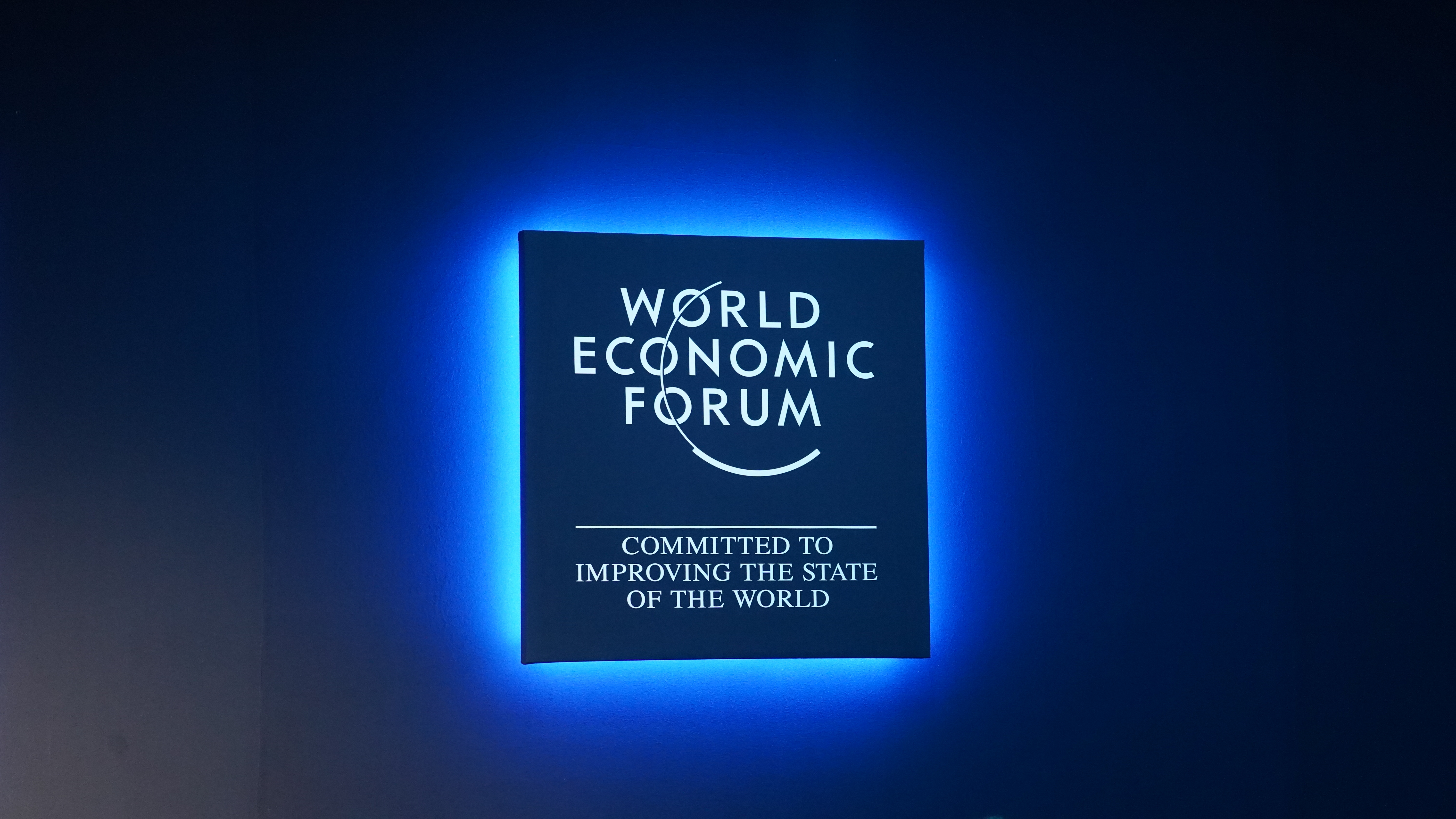
Navigating the New Norm After Binance Incident: Appacus Foundation Forum Sheds Light on Taiwan's Virtual Asset Legal Landscape

Appacus Foundation Forum Highlights Paradigm Shift in Virtual Asset Regulation
In the aftermath of Binance facing a monumental $4 billion fine for alleged involvement in Hamas financing, Sean Chen, Chairman of Taiwan's Appacus Foundation, asserts that this landmark penalty underscores the crucial need for legal frameworks in the digital finance realm. Chen, who is also a Taiwanese political figure and financial expert, contends that the incident not only signals the paramount importance of legal structuring in digital finance but also marks the industry's entry into a new era of legal scrutiny and order.
Taiwan Urged to Forge Stablecoin Legislation Inspired by Singapore and Japan
Expressing dissatisfaction with Taiwan's lax attitude towards relevant legislation over the past five years, Chen advocates for a robust legal environment for stablecoins. He suggests drawing inspiration from Singapore and Japan's regulatory experiences and emphasises the necessity for a Taiwanese version of stablecoin, stating, "Let stablecoins have a clear path!"
Appacus Foundation Forum Addresses Challenges in the Virtual Asset Landscape
Appacus Foundation hosted a forum today, focusing on the challenges posed by virtual assets. The event featured a keynote speech by Yosuke Takesawa, Chief Strategist at Japan's Mitsubishi UFJ Trust and Banking Corporation, delving into Japan's stablecoin issuance framework. Chen, in his opening address, highlighted the global interest in venturing into virtual assets, citing previous attempts by Facebook with Libra and Paypal, which raised concerns for the U.S. government. He pointed out that Singapore and Japan have taken the lead in legislation related to stablecoins in the Asian region.
Chen Urges Swift Action on Stablecoin and Cryptocurrency Legislation
Championing the significance of legislation surrounding stablecoins and cryptocurrency, Chen listed three key issues in Taiwan's digital financial legal framework. These include the challenge of naming, determining the responsible regulatory body, and the insufficient strength of management due to the absence of concrete laws.
Chen critically analysed these issues, noting the progression from the "virtual currency" terminology used two years ago to the present "virtual assets." He highlighted the ongoing considerations by regulatory authorities regarding nomenclature and expressed concern about the confusion arising from the use of different terms in legal documents.
Regulatory Gaps Pose Risks in Virtual Asset Management
Chen emphasised the importance of addressing regulatory gaps and determining a governing body for virtual assets, comparing the situation to an unattended child facing hardships. He stressed the need for explicit legal foundations, asserting that relying solely on guiding principles without legal backing could lead to catastrophic consequences in the event of issues arising.
Appacus Foundation Observations on Taiwan's Regulatory Landscape
Appacus Foundation observed recent turbulence in the financial development of virtual assets globally. With the international market experiencing regulatory challenges and a surge in financial fraud cases in Taiwan, regulatory authorities are compelled to transition from flexible management approaches to align with global regulatory standards.
Urgent Call for Taiwanese Legislation as Regional Competitors Take Strides
The foundation noted that surrounding Asian nations, including Japan, South Korea, Hong Kong, and Singapore, have implemented explicit regulatory frameworks and licensing systems. This proactive stance aims to compete for leadership in the next-generation virtual financial centre. In contrast, Taiwan lacks specific laws and related institutional designs for virtual assets, resulting in a regulatory gap. While this offers flexibility to industry players, it also leads to significant social issues such as inadequate infrastructure for virtual assets and insufficient protection against financial fraud, prompting the foundation to host today's forum.
Virtual Economy's Pivotal Role in Global Finance
As the virtual economy assumes an increasingly vital role in the global economy, the Appacus Foundation forum focused on trends, challenges, and opportunities in the virtual economy. With the rise of AI and Web3 blockchain technologies, the next era of financial innovation is poised to heavily involve the virtual economy.
Collaboration and Dialogue at the Forefront of Addressing Industry Challenges
Through today's forum, which brought together industry experts, scholars, entrepreneurs, and government officials, the collective aim is to delve into the trends, challenges, and opportunities within the virtual economy. The emphasis is on fostering collaboration and dialogue to address the current challenges facing the industry.
More news about binance forum
- Jan 02, 2024 7:09 pmWorld Economic Forum 2024: “Rebuilding Trust” in FocusThe 54th Annual Meeting of the World Economic Forum (WEF) in Davos, Switzerland, is set to convene in January 2024 under the overarching theme of “Rebuilding Trust.” This prestigious event, which gathers leaders and influencers from various sectors worldwide, aims to address some of the most pressing global challenges and explore ways to restore trust […] source: https://www.cryptopolitan.com/world-economic-forum-2024/
- Nov 03, 2023 11:58 amClearpool governance forum is onlineClearpool, the decentralized lending protocol, announced the launch of a governance forum on the Clearpool Discord server. It is reported that the forum serves as a central hub for discussion and collaboration among all Clearpool stakeholders, including borrowers, lenders, investors and the wider user community. After the new staking mode is launched, community members can create governance proposals on the forum to propose enhancements and changes to the Clearpool protocol. Specific details on the proposal logic, framework and voting process will be announced soon.
- Oct 20, 2023 2:56 pmWorld Economic Forum Releases Report on NFT EvolutionAccording to Foresight News, the World Economic Forum has released a report on the evolution of non-fungible tokens (NFTs), analyzing the complexity of the NFT landscape and highlighting future opportunities and challenges. The study suggests that NFTs can offer significant value creation, with the potential to create novel and innovative ways to connect with consumers and foster more meaningful customer relationships. However, recent volatility in the NFT space underscores the risks posed by a market driven by speculation and unsustainable value.Organizations planning to release NFTs should integrate them into their existing operations and ensure a comprehensive strategy is in place before launching. Additionally, governments and regulatory bodies play a crucial role in developing policies and standards to protect investors and build confidence in the NFT market.
- Sep 29, 2023 2:53 pmCircle CEO: Will announce and launch some cool stuff at Circle Forum in New YorkOdaily Planet Daily News Circle CEO Jeremy Allaire posted on the X platform: "We will announce and launch some cool things at the Circle Forum in New York. " According to previous news, Circle submitted an amicus brief in response to the U.S. SEC’s case against Binance and stated that financial transaction laws should not be extended to stablecoins whose values are linked to other assets. Circle believes that U.S. dollar-pegged assets such as BUSD and USDC cannot constitute securities, in part because its users do not expect to make any profit from their purchases. Circle said in the filing that payment stablecoins themselves do not have the basic characteristics of investment contracts, meaning they do not fall within the SEC’s jurisdiction.
- Jul 22, 2023 10:01 amCamelot's Arbitrum Forum Proposal to Award 12 Million ARBs to Camelot DAO FailedArbitrum ecological DEX Camelot's proposal on the "Proposal to grant 2 million ARB to Camelot DAO per month within the next 6 months" on the Arbitrum forum was not approved.
- Jul 08, 2023 10:50 amThe 2023 World Artificial Intelligence Conference Blockchain + WEB3 New Development Forum will be held in Shanghai on July 7On July 7th, "Future Internet, Empowering New Finance" 2023 World Artificial Intelligence Conference Blockchain + WEB3 New Development Forum was held in Shanghai Zhangjiang Science Hall, as one of the key activities of 2023 World Artificial Intelligence Conference (2023 WAIC) , this forum focuses on the new development of digital technologies such as artificial intelligence, blockchain, and WEB3, and discusses how to empower the financial industry, integrate into the financial industry, and reshape the financial industry. The forum is co-hosted by Shanghai Financial Information Industry Association, Shanghai Zhangjiang (Group) Co., Ltd., and Tsinghua University Global Private Equity Research Institute, organized by Shanghai Financial Data Port, supported by Shanghai Artificial Intelligence Industry Association, winner of the "Turing Award", China Prof. Joseph Sifakis, Foreign Academician of Academy of Sciences, Ms. Qiu Wei, Director of Software and Information Service Division of Shanghai Economic and Information Commission, Mr. Yuan Tao, Secretary of the Party Committee and Chairman of Zhangjiang Group, Global Private Equity Research Institute of Tsinghua University Ms. Xiao Xing, the dean, and Professor He Ping, the deputy dean of the School of Economics and Management of Tsinghua University, jointly discussed the technological integration path of artificial intelligence, blockchain and WEB3, and imagined the future development of new technologies.
- Jun 30, 2023 9:38 amCamelot initiates a proposal on the Arbitrum Forum to award 12 million ARBs to the Camelot DAO over the next 6 monthsArbitrum ecological DEX Camelot initiated a proposal on the Arbitrum Forum to grant 2 million ARB to Camelot DAO per month within the next 6 months to fund the liquidity incentives of Arbitrum-centric projects on Camelot. Camelot will publish a full AIP vote for the proposal early next week.
- Apr 06, 2023 6:48 pm2023 Hong Kong Web3 Carnival "Ethereum Ecology" Theme Forum will be held on April 15The 2023 Hong Kong Web3 Carnival "Ethereum Ecology" theme forum, co-planned by the conference organizer Wanxiang Blockchain Labs, HashKey Group and co-organizer SNZ, will be held on April 15 at the venue on the 5th floor of the Hong Kong Convention and Exhibition Center. The morning guests of the event included ConsenSys Global Strategic Business Director Shuyao Kong, Chainlink Labs Solution Architecture Director Roger Brogan, Unipass founder Zhixian, Ethereum standard EIP editor review Zainan Zhou, and Clique co-founder and CEO Kevin Yu. In addition, the early OG dialogue session of Ethereum was set up in the morning session. The guests included Cancer, co-founder of Waterdrop Capital and Chinese translator of Ethereum white paper, Du Yu, head of Wanxiang Blockchain Lab, Ben He, founder and CEO of imToken, Distributed Blue Collar, General Counsel of Capital, Ross Zhang, Managing Partner of SNZ, etc. The roundtable guests of "Investment Opportunities after Ethereum Shanghai Upgrade" included Xiao Xiao, partner of HashKey Capital, Kobby Chen, investment director of Fenbushi Capital, Jared Young, head of Tower Research Ventures, Seth Ginns, managing partner of CoinFund, Gavin, managing partner of SNZ, etc. The roundtable guests on the theme of "Community Education and Public Goods" included Peet, founder of Trusta Labs, Bob, head of Gitcoin Chinese community, Han Tang, founder of SeeDAO, Pablo, contributor to PlankerDAO, Green Pill OP TU WEN, etc. On the afternoon of April 15th, the "Ethereum Ecology" theme forum will move to the second session. Guests include Frank Kong, head of the Asia-Pacific developer community at Chainlink Labs, Jones Ho, and Stanley Yuen, senior full-stack engineers at ConsenSys, who will share information about Chainlink and Consensys Two Web 3 infrastructures and technologies related to the Ethereum ecosystem.
- Mar 09, 2023 5:45 pmBinance Charity adds support for Binance Pay, users can donate through the payment function on the Binance AppBinance announced that Binance Charity has added support for Binance Pay. Users can now make donations to Binance Charity more smoothly through the payment function on the Binance App. Currently, Binance Charity accepts BTC, ETH, BNB, Donations in BUSD and XRP.
- Nov 23, 2022 7:16 pmThe Sandbox to launch Tourismverse in partnership with World Tourism Forum Institute and TourismXThe Sandbox, in partnership with the World Tourism Forum Institute and TourismX, will launch Tourismverse, a virtual community hosted on The Sandbox platform, designed to allow users to visit virtual attractions in different countries and interact through different activities.


















